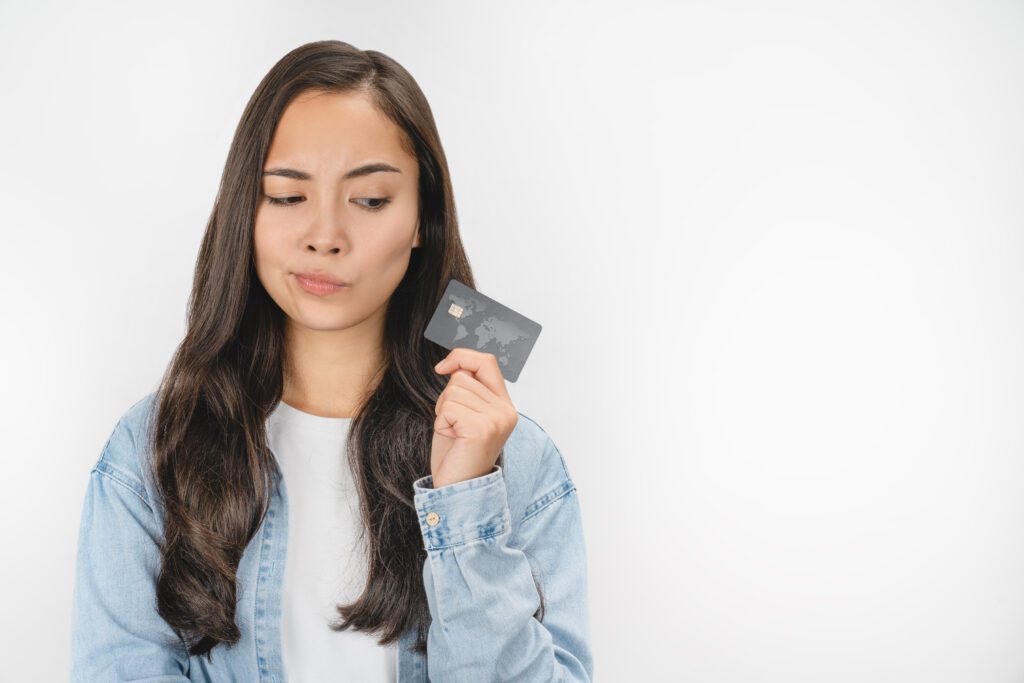Credit cards are often considered a rite of passage for those seeking financial independence and success.
Used to manage expenses, credit cards offer you the consumer added convenience. However, it’s important to know the differences to stay on top of your savings goals, build a good credit history, and effectively manage your spending habits.
From groceries to Amazon orders, convenience is the name of the game when it comes to credit cards, a popular financial tool people use to manage their expenses. The sheer number of options out there, however, can be overwhelming and confusing. Credit cards offer several benefits, such as convenience, rewards, and improved credit scores. However, like any financial product, credit cards come with its advantages and disadvantages.
Before submitting that application, consider these pros and cons of credit cards so you can make the best decision for your situation.

Pros of Credit Cards
1.) Convenience
Credit cards are incredibly convenient for making purchases. You can use them to buy things online, over the phone, or in person. You don’t have to carry cash or worry about writing a check. With a credit card, you have access to a line of credit that you can use whenever you need it. Plus, you can easily track your spending and see how much you owe at any given time.
2.) Rewards
Many credit cards offer rewards programs that allow you to earn points, miles, or cash back on your purchases. These rewards can add up quickly and provide you with a significant amount of savings over time. Some credit cards even offer sign-up bonuses or special promotions that can help you earn even more rewards.
3.) Improved Credit Score
Using a credit card responsibly can help improve your credit score. Your credit score measures your creditworthiness and is used by lenders to determine whether to approve your credit application. By using your credit card regularly and making your payments on time, you can demonstrate to lenders that you are a responsible borrower. This can help you qualify for better interest rates and loan terms.
4.) Protection
Credit cards offer several types of protection that can help you if something goes wrong. For example, if you purchase an item with your defective credit card or never arrives, you can dispute the charge with your credit card company. Additionally, many credit cards offer fraud protection, which can help if your card is stolen or used fraudulently.
Cons of Credit Cards
1.) High-Interest Rates
One of the biggest drawbacks of credit cards is their high-interest rates. You will be charged interest if you carry a balance on your credit card. This interest can quickly add up and make it difficult to pay off your debt. You may be subject to even higher interest rates and penalty fees if you miss or make a late payment.
2.) Debt
Credit cards can be a slippery slope to debt if not used responsibly. Using your credit card to make purchases you can’t afford to pay for upfront can be tempting. This can lead to a cycle of debt that can be difficult to break free from. If you struggle with credit card debt, paying down your balances and avoiding using your cards for unnecessary purchases is important.
3.) Fee
Credit cards often come with various fees, such as annual, late payment, balance transfer, and cash advance fees. These fees can add up quickly and eat into any rewards or benefits you may earn from your credit card. It’s important to read the fine print and understand all the fees associated with your credit card before applying for it.
4.) Temptation to Overspend
Having a credit card can be tempting to overspend. When you have access to a line of credit, it can be easy to justify making purchases you don’t need or can’t afford. It is important to set a budget and stick to it when using your credit card. Additionally, it’s a good idea to only use your credit card for purchases that you can pay off in full each month.
Credit cards can be useful for managing your finances and purchasing. When considering getting a new credit card, it’s important to consider what you’d like to do with it. A credit card could be a good option if you can keep up with repayments. If you can pay off your credit card bill in full every month, it can also boost your credit score.
What’s a safer option: Debit or credit cards?
Credit cards are the best action to protect against potential fraud and data breaches. If you use a credit card, you can rest easy knowing that credit card companies are there to provide refunds as quickly as possible. Not just that, but credit card companies also have safeguards in place, so they step up whenever they spot suspicious or unauthorized transactions – something debit cards, unfortunately, don’t always do. You can save yourself a major headache by choosing credit cards over their debit-card counterparts anytime you need to purchase.
In contrast, when using a debit card, you put yourself at greater risk, as many banks will not refund money already taken out of your account if your information is stolen. However, with debit cards, you can often avoid unnecessary fees which credit cards can sometimes carry. Ultimately the best option is up to personal preference and situation, as credit and debit cards can be used safely when properly managed.
After Considering the Pros and Cons of Credit Cards, Follow These Tips For Using Credit Cards Responsibly
It’s important to weigh the pros and cons of credit cards carefully before you apply for one. If you can use a credit card responsibly, it can be a valuable tool for your financial future. However, if you’re not careful, credit cards can quickly lead to debt and financial problems.
- Only charge what you can afford to pay off in full each month.
- Set up automatic payments so you never miss a bill.
- Don’t carry a balance from month to month.
- Pay attention to your credit card statements and dispute any charges that you don’t recognize.
- Use your credit card for purchases that you would make anyway, such as groceries or gas.
- Don’t use your credit card to buy things that you can’t afford.
If you follow these tips, you can use credit cards to your advantage and build a strong financial future.


